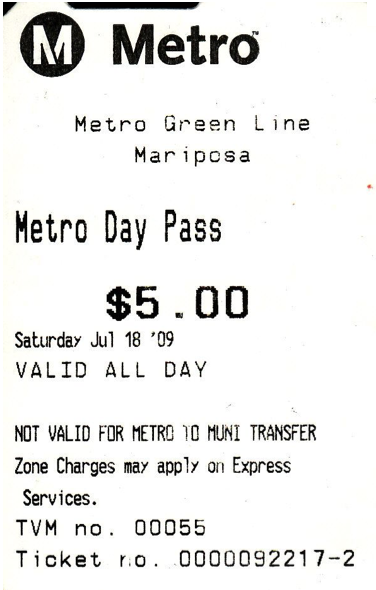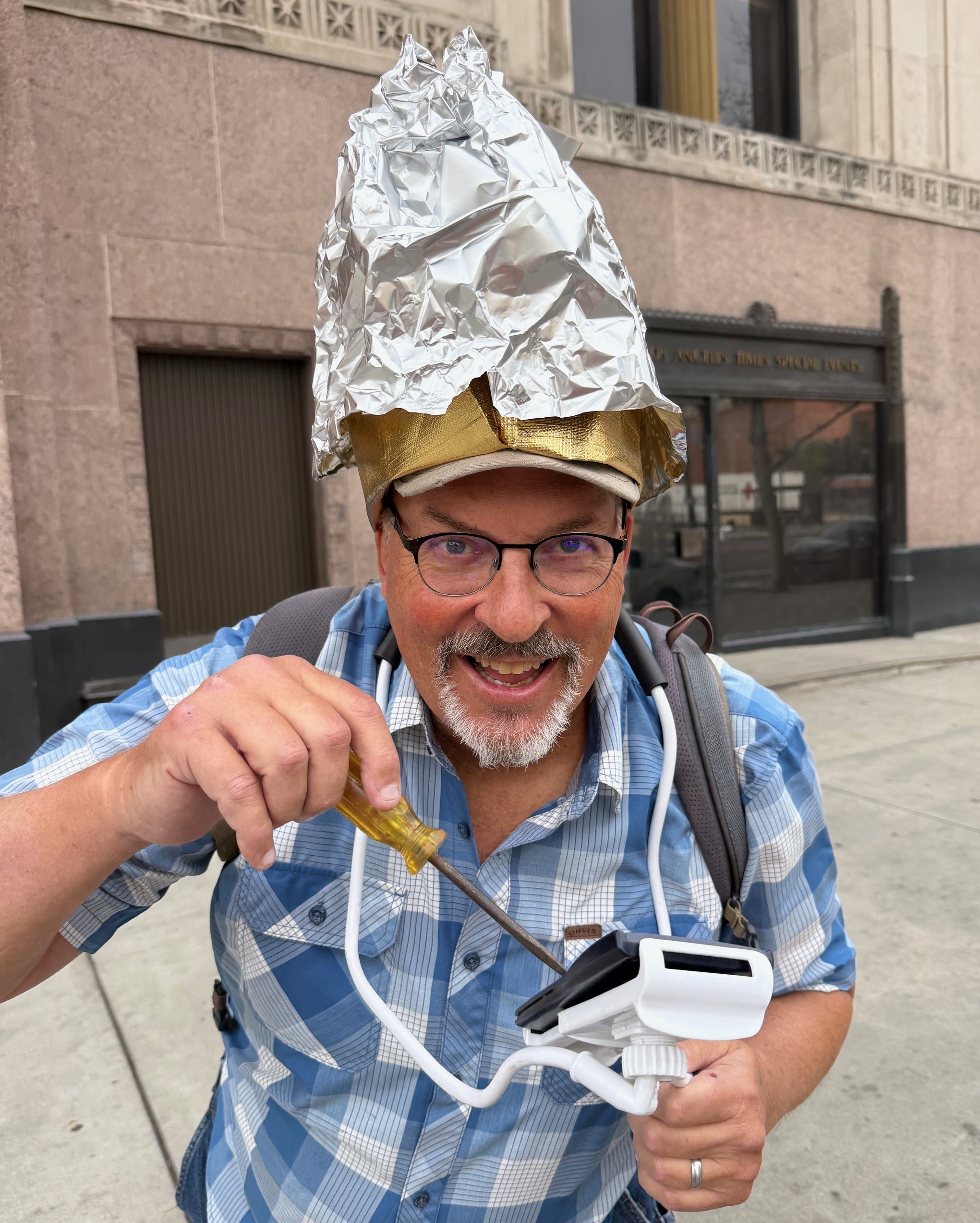One week ago, Metro CEO Art Leahy announced at the Transit Coalition monthly meeting that part of the money saved from cutting 305,000 hours of bus service would go towards reversing part of the 2010 fare

increases by reducing the cost of a Metro Day Pass from $6 to $5. With a Day Pass, a rider can ride an unlimited amount of Metro service for one calendar day, although the cost doesn't cover rides on any municipal bus service such as the Big Blue Bus, DASH or Foothill Transit lines. The dollar decrease will go into effect in late June, with the rest of the service changes assuming that the Metro Board approves the decrease at their next meeting.
A video of Leahy's appearance at the Transit Coalition can be viewed, here.
The news was greeted with smiles by most transit advocates, with KCET even noting that soon the cost of a gallon of gas will be equal to a day of unlimited rides on public transit. However, noted Metro Board gadfly John Walsh disagreed. He thundered at last week's Metro Board meeting that the day pass fare reduction was an example of transit racism. "Who are your day pass riders? Tourists and white middle class families!" He shouted at the Board.
At first glance, Walsh's claim struck me as false. In my admittedly limited experience on Metro buses, the majority of the people using the day pass were not Caucasian. And my memory was proven correct. While Walsh's rhetoric was a clear attempt to prevent the room from embracing the rare fare cut as a worthwhile side effect of the cuts, statistics don't bear out Walsh's claims. Both of the below statistics are from Metro's survey of transit riders completed last year:
As you can see, the percentage of Latino and African-American Metro riders that use Metro's bus service is roughly the same as the percentage of Latino and African-American riders who use the day pass. Reasonable people can disagree on Metro's reasoning in cutting service, or whether reducing the cost of the day pass is a worthwhile way to spend part of those savings; but one thing that can't be said is that reducing the day pass is about easing the transit burden on white passengers.








